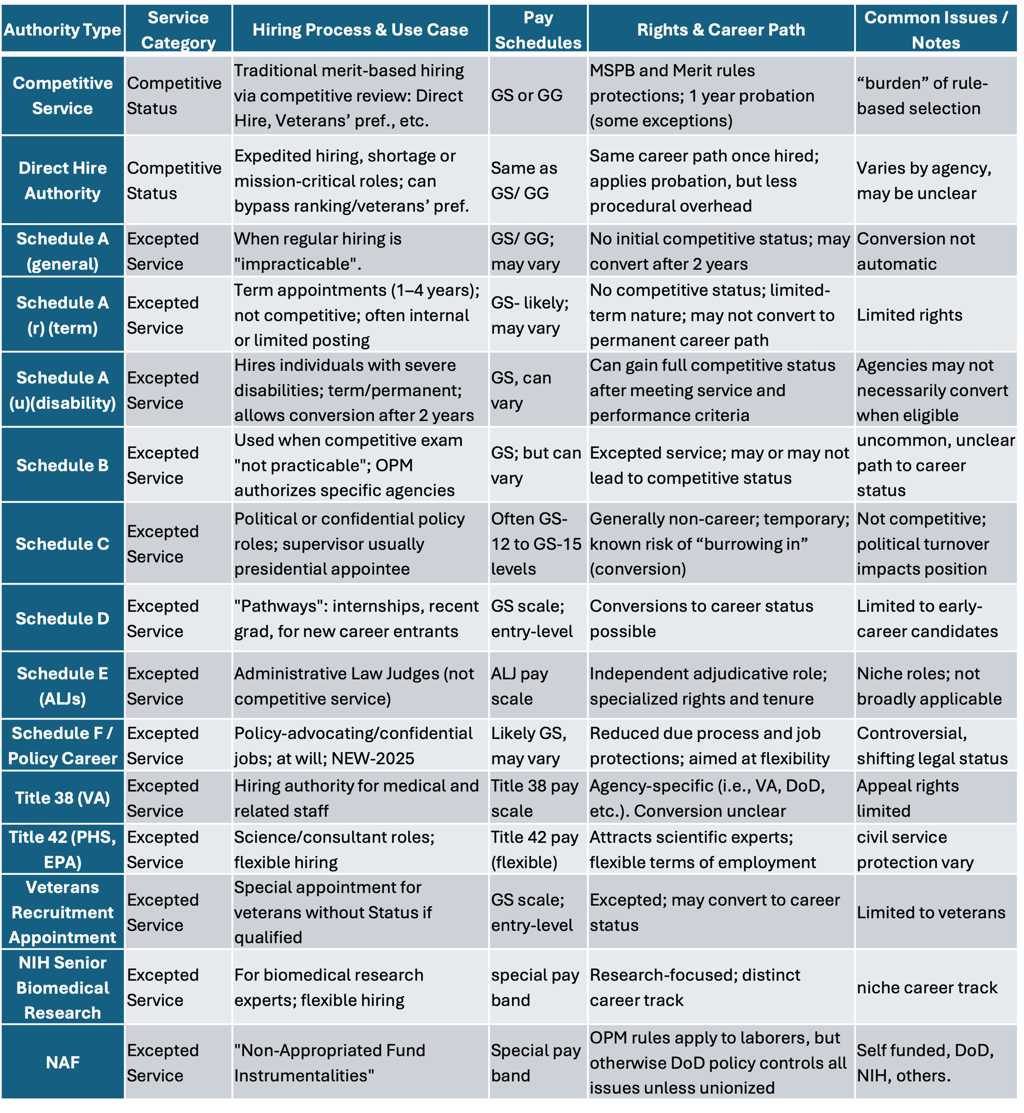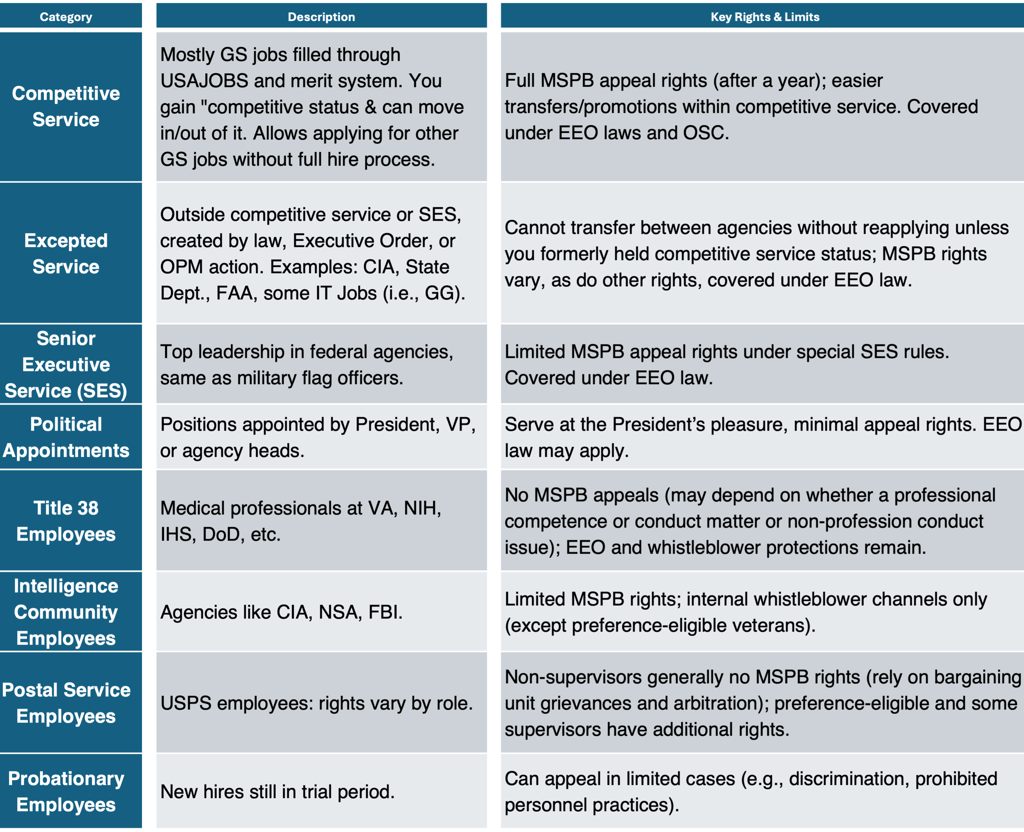
Blog, News, Contributions


Document Everything—Your Career May Depend on It
In the federal workplace, good documentation can be your strongest defense and offense.
Keep detailed records of significant events, conversations, and decisions—especially those involving disputes, discipline, discrimination, or whistleblowing. Whenever possible, communicate BY EMAIL so you have a time-stamped, written record.
If you have verbal conversations, create a brief transcript of what was said and send an email to the person you talked to, and "CC" yourself. Be polite. Describe what was discussed, thank them and say you wanted to ensure you understood correctly as the reason fo the email.
Save messages, memos, meeting notes, and relevant attachments in a secure location outside your agency’s network if possible. Keep a contemporaneous log of incidents, noting dates, times, locations, participants, and what was said or done.
Before you start documenting sensitive matters, get advice—a skilled federal employment attorney can guide you on what to track, how to store it safely, and how to ensure your notes and emails will be admissible at a legal process.
The right documentation, gathered early and methodically, can turn a “he said, she said” dispute into a winnable case.


Federal Workplace News
Workplace Survival Tips
Around the Politics of Government (Aug 8, 2025)
1. Executive Order & Legal Back-and-Forth
A sweeping executive order purportedly removes collective bargaining rights for up to two-thirds of federal workers, citing national security. Unions have filed multiple legal challenges, leading to preliminary injunctions from district courts. However, an appeals court has allowed aspects of the order to proceed.
2. Major Agencies Terminate Union Contracts
The Department of Veterans Affairs (VA) has terminated nearly all of its union contracts, directly affecting hundreds of thousands of employees. Police, firefighters, and security professionals remain exempt.Government Executive, VA News
The Environmental Protection Agency (EPA) has similarly canceled collective bargaining agreements with multiple unions, citing the same executive directive.Federal News Network, Politico
Other agencies are following suit.
3. Broader Impacts on Federal Workforce & Public Health
NIOSH, a critical public health agency, faces severe staff cuts—losing around 850 of 1,000 employees—jeopardizing key programs like the firefighter cancer registry and respirator certification. Labor and health leaders are raising alarms.AP News
Additionally, a deferred resignation program—informally known as the "Fork in the Road" memo—offered departing employees full pay and benefits while on leave, prompting backlash from unions and legal uncertaint
Federal Employment Categories & Your Rights
Be advised this is subject to change & there are even more hiring categories and authorities
Note: Schedule F was repealed in 2021, reinstated in 2025—its future remains TBD; Competitive Service paths (e.g., competitive examining, Pathways programs) are the main routes into standard federal roles; Direct Hire and Schedule appointments (A–E, Title 38/42) offer streamlined options for special professions or urgent staffing needs; NAF to APF conversion is possible under limited DoD-specific interchange agreements—but otherwise, NAF employees typically fall outside standard civil service hiring rules. The "GG" is a new category, we do not cover it below, but it is still being adjusted, and mostly at this point for IT related careers.


QUICK SUMMARY OF HIRING PROCESS AND VENUES
Sometimes, your status in government may determine your benefits. Talk to an attorney about your circumstances if you have any questions. Below is for information purposes only and subject to change.


Federal Employee Rights Counsel
Dedicated support for federal employees.
+49 (0) 151 4427 8841
© 2025. All rights reserved.
Disclaimer: The information on this website is for general informational purposes only and does not constitute legal advice. You should not act or rely on any content from this site without consulting a qualified attorney about your specific situation. Contacting this law firm through the website does not create an attorney-client relationship. Do not send confidential or time-sensitive information through this site. An attorney-client relationship is only formed after direct communication and a signed agreement. The attorneys are licensed to practice in the District of Columbia and any other jurisdictions listed. This site is not intended to solicit clients outside those areas. Past results do not guarantee future outcomes. For legal advice or representation, please contact the firm directly.
HINWEISS: Die Informationen auf dieser Webseite dienen nur zur allgemeinen Information und sind keine rechtliche Beratung. Sie sollten nicht handeln oder sich auf Inhalte dieser Seite verlassen, ohne vorher mit einem qualifizierten Anwalt über Ihre spezielle Situation zu sprechen. Wenn Sie diese Kanzlei über die Webseite kontaktieren, entsteht kein Mandatsverhältnis. Bitte senden Sie keine vertraulichen oder dringenden Informationen über diese Seite. Ein Mandatsverhältnis entsteht nur nach direkter Kommunikation und einem unterschriebenen Vertrag. Die Anwälte sind in Washington, D.C. und in anderen genannten Regionen zugelassen. Diese Seite richtet sich nicht an Personen außerhalb dieser Gebiete. Frühere Ergebnisse garantieren keine zukünftigen Erfolge. Für rechtliche Beratung oder Vertretung kontaktieren Sie bitte direkt die Kanzlei.
